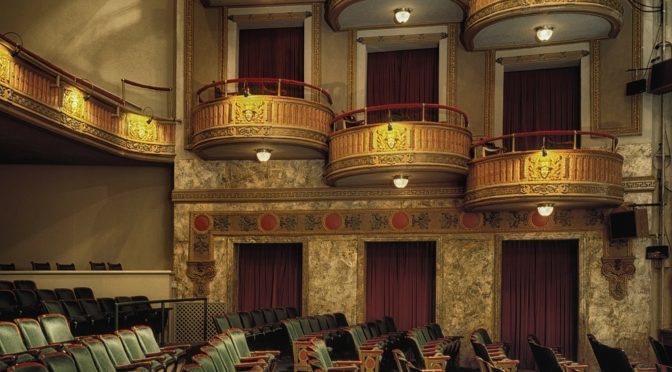by Michael Manley, Director Organizing and Education Division
Everyone loves to get the call, text, email, or Facebook message offering them work—especially when gigs are scarce and times are lean. Employers know you love to make music, and the best employers value and fairly reward this. The worst, however, will exploit your passion for their own gain. Before you decide to take the job, ask yourself two questions: “What should this job pay?” and “What am I worth?” Then, follow the money.
In building a freelance career, sometimes the job you say “no” to can be just as crucial as the one that you say “yes” to. Of course, a union contract is the best guarantee that the job is paying appropriate wages and contains appropriate benefits. While it would be ideal if every musician only worked union jobs, currently that is not the reality. But it is not hard to spot those jobs that should be union and that is where musicians need to ask the right questions and say “no” when appropriate. Here are a few key points to look for and some factors to consider before taking a job.
What’s the gig? Separating for-profit from public service
We all know how it works: you get an offer, which includes the type of ensemble, genre, and repertoire, venue, and most importantly, what the pay and benefits are. Before deciding to accept or reject an offer, determine the context of the employment. Performing at a local church during the holiday season? With no tickets sold or meaningful profit being realized, this gig is really one of public service. You may or may not decide to take the work based on the pay offered, the people you are performing with, the repertoire, and the mission or cause being served by the concert.
But what if tickets are sold and the performance is in a large capacity venue? This is where you have to proceed with caution.
What is the job paying, and what should it pay?
How do you find out what a job should pay? Consult your AFM local’s website for scales, or give the local a call, if the scales are not published online. Union local scales may vary according to the type of engagement, type of music, and size of the venue. Remember: local scales are minimums, not maximums—they should easily fit into the budgets of truly professional for-profit events and concert producers.
What is the size of the venue, and what are the ticket prices?
If the venue is more than 1,000 seats and tickets are being sold at top prices, a union contract should be a given and the absence of one is a huge red flag. If there is no union protection and the wages being offered for the job are lower than union scale, why?
Who is the artist/act?
If you are being asked to play for a band, artist, or act that is a “household name,” you should never work without a union contract. The act/artist can afford union rates. If the job is being offered as nonunion and at substandard wages, it means the money the artist is paying for back-up musicians is not trickling down to you. Where is it going?
Who are you working for?
Follow the money
Who called you for the job? Is it a trusted high-profile union contractor who has booked similar jobs in the past? If not, why? A common trend now: peers who act as contractors for a job, with these musicians being offered a bump in pay to make job offers to their colleagues. They act as proxy employers—but they are not really employers. Will you receive a 1099 for the work, or will you receive a W-2? Or worse, is someone going to try and pay you with PayPal or Venmo? And who is your peer working for? This is the hallmark of a sketchy gig—one where you have no protections or recourse if there are problems. And why is a section violin player being asked to contract your work anyway? Consider what would happen if you were underpaid or never got paid. Who would you go after for the money?
Remember, if you do not have the protections of a union agreement, then you do not have any protections at all.
What about the extras?
Are you being asked to drive more than an hour to do the job? If so, mileage should be paid or professional chartered transportation should be provided. If there is a soundcheck in the late afternoon and an evening concert, you should be provided a hot meal or appropriate meal per diem between calls. The absence of both of these is a red flag. In a major venue, it is likely that union stagehands, carpenters, and electricians are working for fair union wages and benefits. If the crew member plugging in the amp is receiving a union wage, why not you?
No one is impressed by
underpaid work
It’s great to play in a large venue with “stars.” We all love to post backstage photos with artists when we get to share the stage with them. But the people who matter to your career—the top-tier players and contractors—will know when a job is undermining the basic standards and conditions that they have worked hard to achieve and maintain in their own careers. They are not impressed when you work for substandard wages. And working for substandard wages does not lead to working for appropriate wages, nor does it lead to working with the influential first-call musicians with whom you hope to share the stage as your career develops.
The bottom line
We all love to make music, and saying “no” can be hard. Emerging professionals sometimes take nonunion work because it is all they feel they can get. But a truly nonprofit, nonunion church or community theater gig is a far cry from playing with a well-known artist in a huge arena. There is some work that absolutely should be “union”—make sure you know what it is. If you are being offered substandard wages and conditions, with no union protections, don’t be afraid to say “no,” warn your colleagues, and alert your union local. You and your career will be better for it in the long run.
What can you do about sketchy gigs? Organize them! Call the AFM Organizing and Education Division at (917)229-0267 or email Director Michael Manley at mmanley@afm.org.




